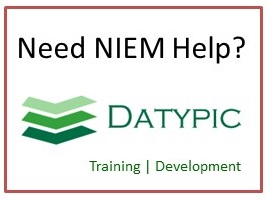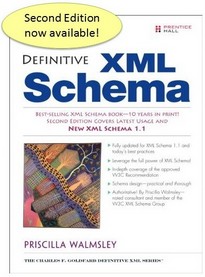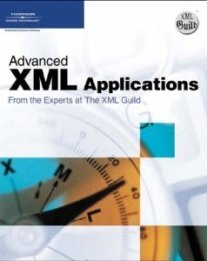gml:Dictionary
Sets of definitions may be collected into dictionaries or collections. A gml:Dictionary is a non-abstract collection of definitions. The gml:Dictionary content model adds a list of gml:dictionaryEntry properties that contain or reference gml:Definition objects. A database handle (gml:id attribute) is required, in order that this collection may be referred to. The standard gml:identifier, gml:description, gml:descriptionReference and gml:name properties are available to reference or contain more information about this dictionary. The gml:description and gml:descriptionReference property elements may be used for a description of this dictionary. The derived gml:name element may be used for the name(s) of this dictionary. for remote definiton references gml:dictionaryEntry shall be used. If a Definition object contained within a Dictionary uses the descriptionReference property to refer to a remote definition, then this enables the inclusion of a remote definition in a local dictionary, giving a handle and identifier in the context of the local dictionary.
Element information
Namespace: http://www.opengis.net/gml/3.2
Schema document: external/ogc/gml/3.2.1/dictionary.xsd
Type: gml:DictionaryType
Properties: Global, Qualified
Content
- Sequence [1..1]
- gml:metaDataProperty [0..*] deprecated
- gml:description [0..1] The value of this property is a text description of the object. gml:description uses gml:StringOrRefType as its content model, so it may contain a simple text string content, or carry a reference to an external description. The use of gml:description to reference an external description has been deprecated and replaced by the gml:descriptionReference property.
- gml:descriptionReference [0..1] The value of this property is a remote text description of the object. The xlink:href attribute of the gml:descriptionReference property references the external description.
- gml:identifier [1..1] Often, a special identifier is assigned to an object by the maintaining authority with the intention that it is used in references to the object For such cases, the codeSpace shall be provided. That identifier is usually unique either globally or within an application domain. gml:identifier is a pre-defined property for such identifiers.
- gml:name [0..*] The gml:name property provides a label or identifier for the object, commonly a descriptive name. An object may have several names, typically assigned by different authorities. gml:name uses the gml:CodeType content model. The authority for a name is indicated by the value of its (optional) codeSpace attribute. The name may or may not be unique, as determined by the rules of the organization responsible for the codeSpace. In common usage there will be one name per authority, so a processing application may select the name from its preferred codeSpace.
- gml:remarks [0..1]
- Choice [0..*]
- gml:dictionaryEntry This property element contains or refers to the definitions which are members of a dictionary. The content model follows the standard GML property pattern, so a gml:dictionaryEntry may either contain or refer to a single gml:Definition. Since gml:Dictionary is substitutable for gml:Definition, the content of an entry may itself be a lower level dictionary. Note that if the value is provided by reference, this definition does not carry a handle (gml:id) in this context, so does not allow external references to this specific definition in this context. When used in this way the referenced definition will usually be in a dictionary in the same XML document.
- gml:definitionMember deprecated
- gml:indirectEntry deprecated
from subst. group gml:dictionaryEntry
from type gml:DefinitionBaseTypefrom type gml:DefinitionType
Attributes
| Name | Occ | Type | Description | Notes |
|---|---|---|---|---|
| gml:id | [1..1] | xsd:ID | from type gml:DefinitionBaseType | |
| aggregationType | [0..1] | gml:AggregationType | from group gml:AggregationAttributeGroup |
Used in
- Type gml:ArrayAssociationType (Element gml:members)
- Type gml:DictionaryEntryType (Elements gml:definitionMember, gml:dictionaryEntry)
Substitution hierarchy
- gml:AbstractObject
- can be substituted with gml:AbstractGML
- can be substituted with gml:Definition
- can be substituted with gml:Dictionary
- can be substituted with gml:Definition
- can be substituted with gml:AbstractGML
Sample instance
<gml:Dictionary gml:id="ID"> <gml:metaDataProperty> <gml:GenericMetaData>Any text, intermingled with: <!--any element--> </gml:GenericMetaData> </gml:metaDataProperty> <gml:description>string</gml:description> <gml:descriptionReference/> <gml:identifier codeSpace="http://www.example.com/">string</gml:identifier> <gml:name>string</gml:name> <gml:remarks>string</gml:remarks> <gml:dictionaryEntry> <gml:Definition gml:id="ID"> <gml:metaDataProperty>... </gml:metaDataProperty> <gml:description>string</gml:description> <gml:descriptionReference/> <gml:identifier codeSpace="http://www.example.com/">string</gml:identifier> <gml:name>string</gml:name> <gml:remarks>string</gml:remarks> </gml:Definition> </gml:dictionaryEntry> </gml:Dictionary>



